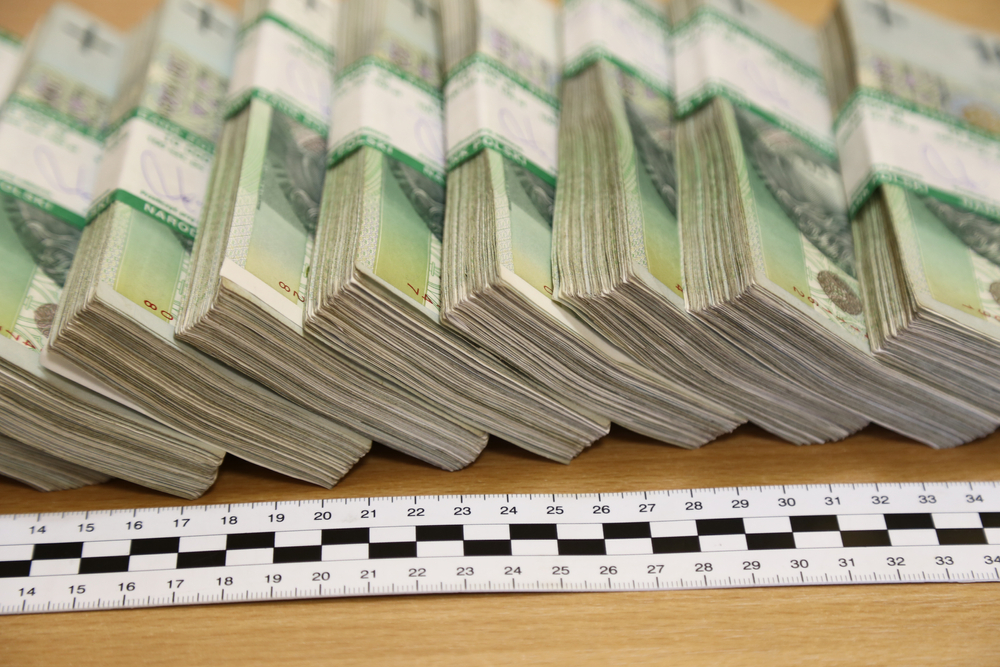In the periods following political transitions, Arab governments have faced difficulties in recovering money and assets illegally looted by individuals linked to previous regimes. Egypt, Sudan, Libya, Tunisia, Algeria, Lebanon and Iraq are all Arab countries who experienced this problem, and the issue continues to resurface from time to time. The issue was raised lately in the context of a seminar held at the UN headquarters in Geneva, regarding the negative impact of the non-repatriation of funds of illicit origin to the countries of origin on the enjoyment of human rights. Experts from international organizations, state representatives, and civil society organizations participated in the seminar.
The joint initiative by Egypt, Tunisia, and Libya, presented to the Human Rights Council, which received the support of African and Arab groups, revealed the obstacles facing Arab countries in repatriating looted funds on the one hand. Moreover, it highlighted the significant loss in financial resources this entails, which undermines these countries’ efforts to mobilize domestic resources for sustainable development. It is worth noting that the volume of looted funds has been estimated to be larger than developmental aid provided by developed countries to these countries in some cases. The need to repatriate these funds has been growing, as the impact of the Covid-19 pandemic has exacerbated the difficulties of Arab countries who were already facing a variety of economic, political and security challenges.
Arab countries face a variety of challenges in their efforts to repatriate looted funds, these include:
- Political support for corrupt businessmen: Tunisia provides an example of how individuals, both private businessmen and government officials can get political cover for their illegal financial activities, which occurred under both the Ben Ali and Ennahda regimes. Reports reveal that the Ennahda provided political cover for certain businessmen, facilitating their ability to obtain unguaranteed loans, and subsequently undermining investigations into these actions. There was also looting of public funds by businessmen loyal to the regime of former President Ben Ali, as revealed by the National Commission for Inquiry on Bribery and Corruption report in late 2011. The looting included the theft of public money, acquiring state land at a reduced price, and manipulating public funds and deals involving major projects, as well as serious abuses in the banking and financial sector.
- Transnational interest networks: One of the main explanations for the difficulty in repatriating smuggled funds is related to the existence of transnational networks between the looters in developing countries and parties in countries to which funds are moved. Therefore, there are parties with a vested interest in protecting the secrecy of these transactions, encouraging the continuation of these crimes and hindering the efforts of Arab financial and supervisory institutions to discover and repatriate these funds. In this context for example, Lebanese President Michel Aoun, during a meeting with French Foreign Minister Jean-Yves Le Drian on May 16th, 2021, called on France and European countries to help repatriate funds smuggled abroad, stressing that this helps in implementing reforms and prosecuting those responsible.
- Dual nationalities: Individuals involved in the illegal transfer of funds often resort to acquiring the citizenship of the countries to which these funds are transferred, and then to use the funds to make what appear to be legitimate investments there. The latter often argue that there is insufficient documentation that these invested funds are of illegal origin, which complicates efforts to repatriate them. This has especially been the case with funds embezzled by persons affiliated to regimes that have remained in power for extended periods of time, as the passage of time obscures the origin of the funds.
- Reluctance to engage in settlements: Businessmen involved in cases of illegally obtained or transferred funds are often reluctant to engage with governments in a process of legal settlement, fearing that scrutiny will be extended to their other business activities, and that more demands will be made. Arab regimes which have offered such settlements often point out that these are only “partial” in nature, which creates an atmosphere of distrust. For example, Tunisian President Kais Saied announced, in a meeting with the president of the Tunisian Federation of Industry and Trade, Samir Majoul, on July 29th, 2021, that 460 people looted 13,500 billion dinars (USD 4.8 billion) of the country’s funds, while he offered to drop legal charges in exchange for the return of these funds, the amnesty offered was not absolute.
- Technological facilities: the introduction of modern digital tools in banking and the transfer of funds allow the dispersion of looted funds into a wide range of investments and financial instruments, making tracking them more difficult. Egyptian President Abdel Fattah El Sisi highlighted these difficulties in his speech before the G20 summit in China on September 5th, 2016, noting “the importance of developing mechanisms for tracking the movement of capital out of developing markets, and preventing speculative and illegal financial flows that negatively affect the financial and monetary situation of our developing economies.”
There are many approaches through which efforts can be strengthened to recover Arab funds, including:
- Tightening oversight on local banks and financial institutions and tracking potential links of some of their employees to individuals accused of looting public money.
- Coordinating efforts between relevant authorities to confront corruption and recover looted funds abroad, to prevent conflicting procedures and duplication of tasks.
- UN organizations coordinating efforts to retrieve looted funds need to formulate guidelines to be implemented on a global scale, to make future illegal transactions more difficult..
- Forming alliances and pressure groups against countries that provide safe havens for these funds. The International Conference for the Recovery of Stolen Funds, held in Baghdad on September 15th, 2021, pointed out the need to coordinate efforts to lobby and exert pressure on countries that provide safe haven to these funds.
Arab countries need to coordinate their efforts and conduct an organized campaign in order to succeed in repatriating these funds. They need to mobilize their ministries of Justice, judicial councils, oversight bodies, civil society organizations, and legal and academic specializing in this issue. The cooperation of the countries to which these funds have been transferred is also crucial, as is their technical support in unmasking these illegal transactions and holding the perpetrators accountable.


